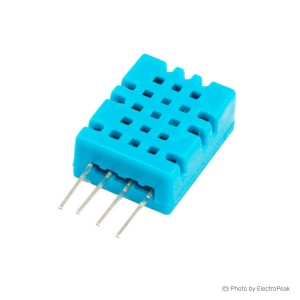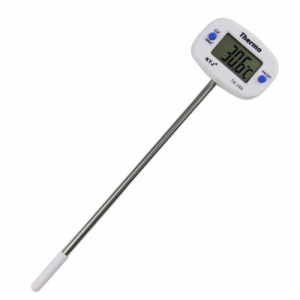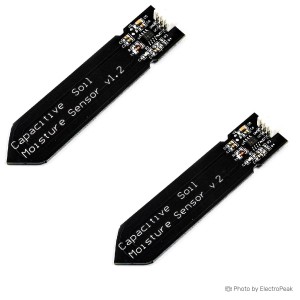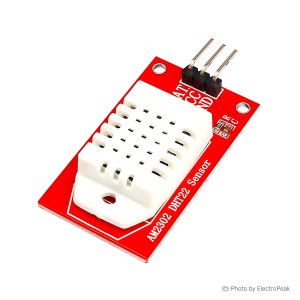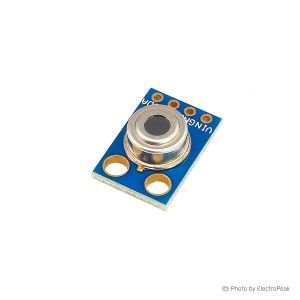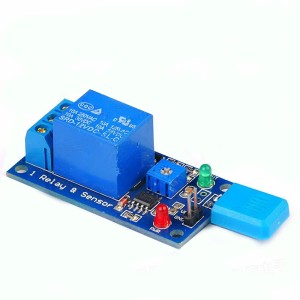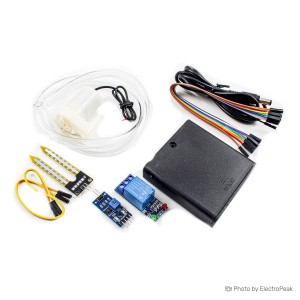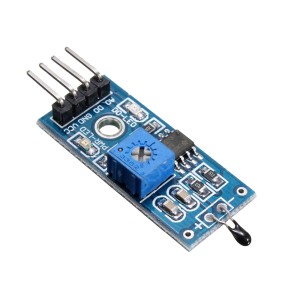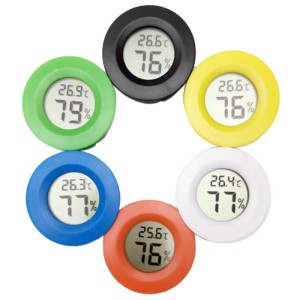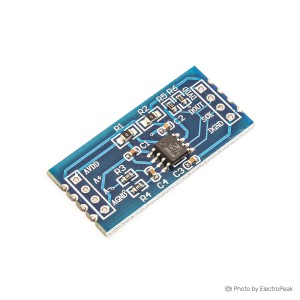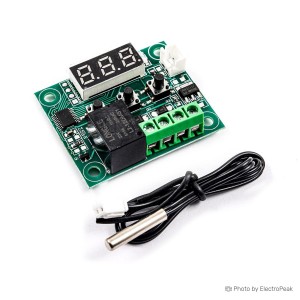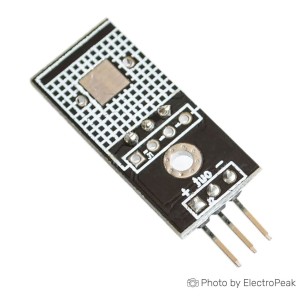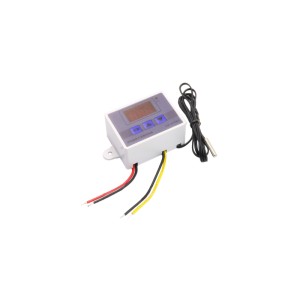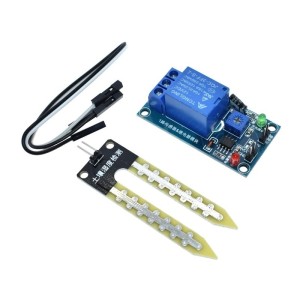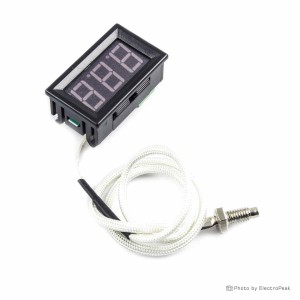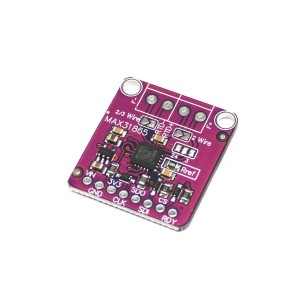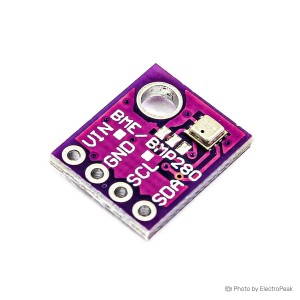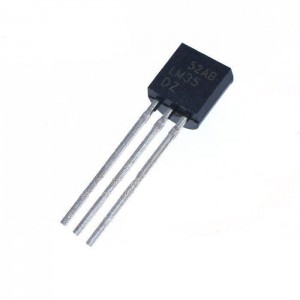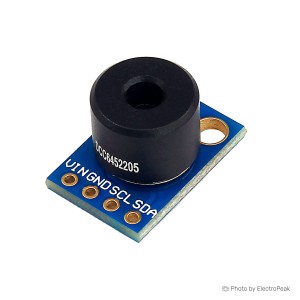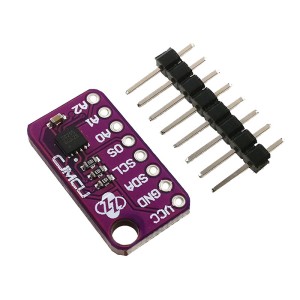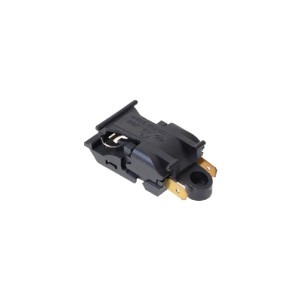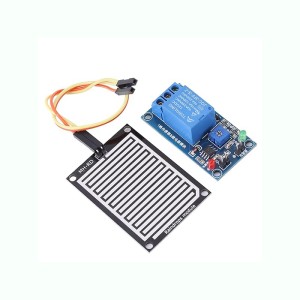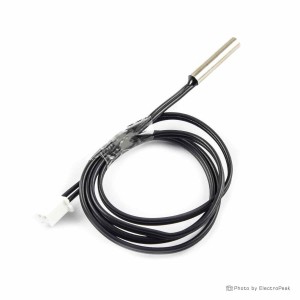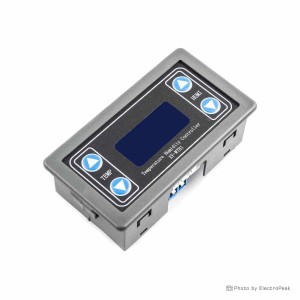Temperature sensors measure the degree of heat in a given environment, while humidity sensors gauge the moisture content. Both play crucial roles in environmental monitoring, offering insights into conditions.
Temperature & Humidity
Temperature and Humidity Sensors
Temperature and humidity sensors, often combined into a single device, measure ambient conditions in the surrounding environment. These sensors play a crucial role in various applications, providing data for climate control, weather monitoring, industrial processes, and more.
Price of Temperature and Humidity Sensors
The cost of these sensors varies depending on factors such as precision, calibration features, and additional functionalities. While basic models are budget-friendly, advanced sensors with wireless connectivity or multiparameter capabilities may come at a higher price point.
Tips for Buying Temperature and Humidity Sensors
- Precision and Calibration: Precision is vital, especially in applications where accurate readings are essential. Look for sensors that offer calibration features or high precision to meet specific environmental requirements.
- Interface Compatibility: Consider the interface options the sensor supports, such as I2C or SPI. Ensure compatibility with your existing setup or microcontroller to facilitate seamless integration.
- Power Consumption: Assess the power consumption of the sensor, particularly if you prioritize energy efficiency. Low-power sensors are ideal for battery-operated devices or scenarios where minimizing energy usage is crucial.
- Outdoor vs. Indoor Use: Some sensors are designed for outdoor applications, capable of withstanding diverse weather conditions. Others are optimized for indoor use, providing accurate readings in controlled environments.
- Wireless Connectivity: In the age of the Internet of Things (IoT), some sensors offer wireless capabilities like Wi-Fi or Bluetooth. This enables remote monitoring and real-time data access, enhancing the sensor's versatility.
- Multiparameter Sensors: Explore sensors that not only measure temperature and humidity but also incorporate additional parameters like pressure or gas concentration. Multiparameter sensors offer a holistic environmental overview.
Type of Temperature and Humidity sensors
- I2C Temperature Sensors: These sensors communicate over the I2C protocol and provide accurate temperature readings. The TMP102, LM75, MCP9808, Si7021, and SHT20 are commonly used for applications where precise temperature monitoring is essential.
- I2C Temperature and Humidity Sensors: Ideal for environments where both temperature and humidity data are crucial, the SHT1x, HTU21D, SHT21, SHT30, SHT31, HDC1080, BME280, and SHTC3 offer comprehensive measurements over the I2C bus.
- SPI Temperature Sensors: Suited for applications requiring Serial Peripheral Interface communication, the MAX31855, ADT7310 and MCP3201 are versatile sensors known for their reliability in various setups.
- SPI Temperature and Humidity Sensors: Combining SPI interface with humidity readings BME280 and BME680 cater to scenarios demanding both temperature and humidity information.
- Analog Temperature Sensors: These sensors provide temperature data through analog signals. The LM35, TMP36, MCP9700, AD590, and LM335 are straightforward and widely used for basic temperature monitoring applications.
- Analog Temperature and Humidity Sensors: For analog sensors that offer both temperature and humidity information, and TH02 provide a balance between simplicity and functionality.
- Digital Temperature Sensors: Utilizing digital communication protocols, DS18B20, DS1624, and DS75 are renowned for their accuracy and precision in temperature measurement applications.
- Digital Temperature and Humidity Sensors: With digital interfaces and the ability to measure both temperature and humidity, DHT11 and DHT22 (AM2302) are popular choices for a wide range of projects.
- Wireless Temperature and Humidity Sensors: Including Xiaomi MiFlora, ESP8266 with DHT22, Zigbee-based sensors, Bluetooth Low Energy (BLE) sensors, and LoRa-based sensors, this category focuses on wireless communication, offering flexibility and convenience.
- Multiparameter Environmental Sensors: For applications requiring additional environmental data, CCS811 (CO2 and TVOC), BMP388 (Pressure and Temperature), MQ Gas Sensors (Gas concentration) and MiCS-5524 (CO, Methane, LPG), provide comprehensive readings beyond temperature and humidity.
Difference between Temperature and Humidity Sensors:
Sensors Providing Both Temperature and Humidity:
The BME280, HTU21D, and SHT3x series are popular models providing dual functionality. These sensors are widely used in weather stations, HVAC systems, and IoT devices to monitor and control environmental conditions.
Analog vs. Digital Temperature Sensors:
Analog temperature sensors, like the LM35, produce a continuous voltage signal proportional to temperature. Digital counterparts, such as the TMP102, offer the advantage of easy interfacing with microcontrollers like Arduino, enhancing accuracy and stability.
High-Precision Applications with Temperature Sensors
For high-precision applications like medical equipment or laboratory instruments, platinum RTDs such as the PT100 and thermocouples like the MAX31855 are preferred. These sensors provide exceptional accuracy and reliability in demanding settings.
CO2 Monitoring Alongside Temperature and Humidity
The MH-Z19 series integrates CO2 measurement with temperature and humidity sensing. Ideal for indoor air quality monitoring, these sensors, when combined with microcontrollers, enable sophisticated environmental control systems.
Operating Range Impact on tempreature or humidity sensor Performance
The DHT22, known for its wide operating range, performs admirably in diverse conditions. However, for extreme temperatures, sensors like the TMP102, designed for -40 to +125°C, ensure accurate readings even in harsh environments.
Temperature Sensors for Industrial Applications
Response Time of Digital Temperature and Humidity Sensors
The AM2302, a digital humidity and temperature sensor, boasts a rapid response time, making it suitable for applications requiring real-time monitoring, such as climate-controlled facilities or data centers.
